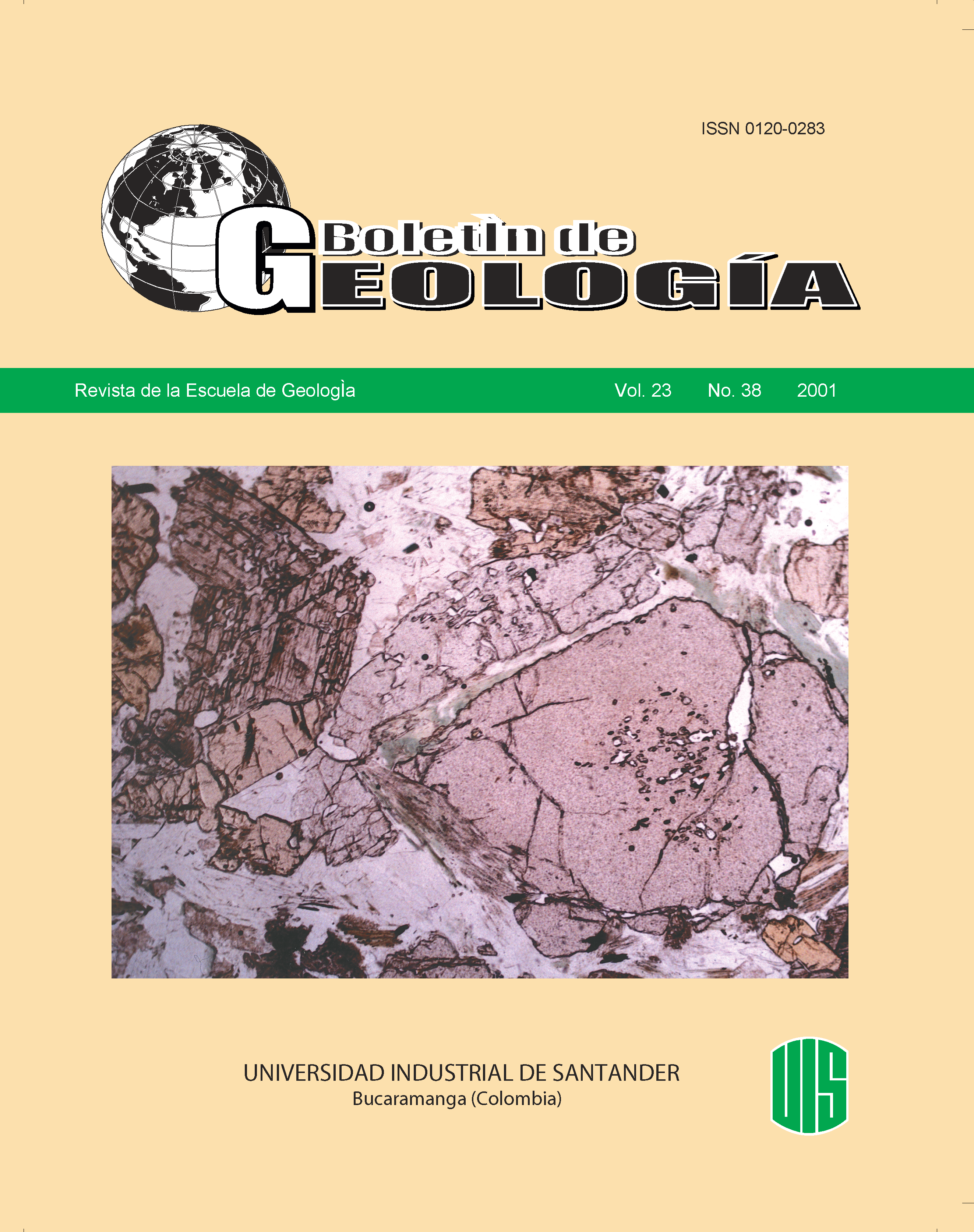Ocurrencia, composición química y significado genético de la biotita en las rocas metamórficas de la Formación Silgará en la región suroccidental del Macizo de Santander
Published 2001-10-02
Keywords
- Santander Massif,
- Barrovian,
- biotite
How to Cite
Abstract
The Lower Paleozoic Silgará Formation is a sequence compossed mainly by metapelitic rocks and interlayered mafic rocks that form part of the metamorphic basement that crops out in the southwestern region of the Santander Massif. The Silgará Formation of metamorphic rocks have been affected by a Barrovian type metamorphism, developing a sequence of metamorphic zones (sillimanite, staurolite-kyanite, garnet, and biotite). Metamorphism has occurred under high-temperature and medium-pressure conditions, reaching the amphibolite facies. During the prograde metamorphism of the Santander Massif metamorphic rocks, the biotite has grown in a wide range of pressure and temperature conditions, and the change in its chemical composition tends to reflect the effect of the bulk-rock chemistry rather than the grade of metamorphism.
Downloads
References
García, C., Ríos, C. (1999). Metamorfismo ymetalogenia asociada del Macizo de Santander,Cordillera Oriental (COLOMBIA). Informe final delproyecto de investigación 1102-05-083-95Colciencias - Universidad Industrial de Santander,Bucaramanga, p. 191.
Goldsmith, R., Marvin, R., Mehnert, H. (1971).Radiometric ages in the Santander Massif, EasternCordillera, Colombian Andes. U.S. GeologicalSurvey Professional Paper, 750-D, pp. D41-D49.
Indares, A., Martignole, J. (1984). Evolution of P-Tconditions during a high-grade metamorphic eventin the Maniwaki area. Canadian Journal of EarthSciences, Vol. 21, pp. 853-863
Kretz, R. (1983). Symbols for rock-forming minerals.American Mineralogist, Vol. 68, pp. 277-279
Ríos, C. (1999). Chemical Compositions of theConstituent Minerals and P-T Conditions of the Low-grade Silgará Formation Metamorfic Rocks in theSantander Massif, Eastern Cordillera, ColombianAndes. Master Tesis, Shimane University, Matsue(Japan), p. 207.
